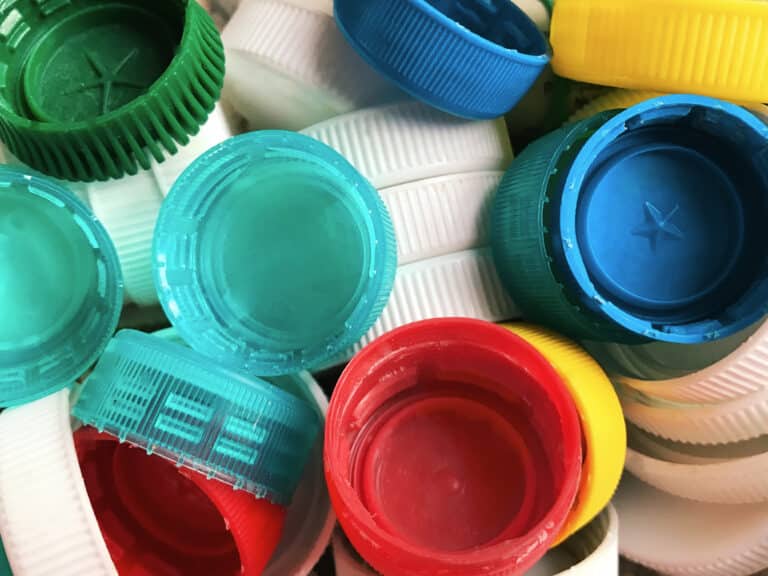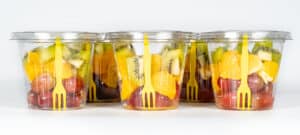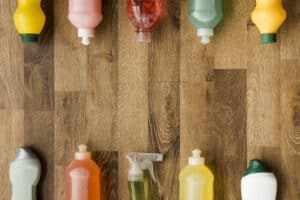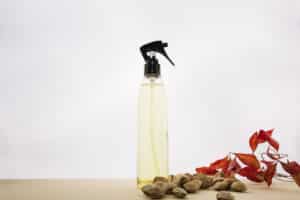In the world of wholesale packaging, choosing the right materials for your products is crucial. When it comes to plastic mason jar lids, durability is key. You want to ensure that the lids can withstand the demands of everyday use and provide a secure seal for your customers’ jars. This article will guide you through the process of selecting the best materials for durable plastic mason jar lids wholesale.
The importance of material selection for plastic mason jar lids
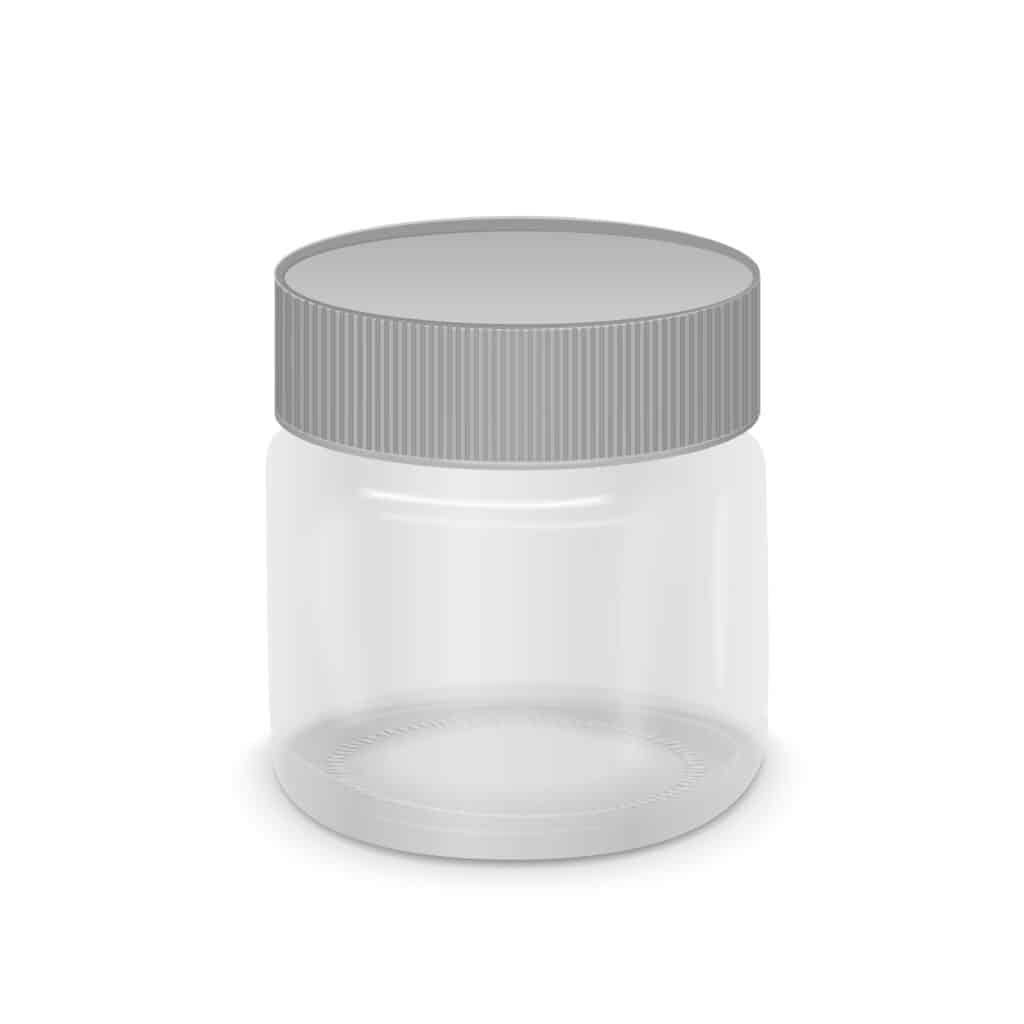
The material used for manufacturing plastic mason jar lids plays a significant role in their overall performance. It affects their strength, durability, and ability to maintain an airtight seal. Therefore, it’s essential to consider the following factors when selecting the materials:
Strength and durability
It’s crucial to choose lids made from a strong and durable plastic material. Look for options that can withstand everyday use without cracking or breaking. This will ensure that your customers can rely on the lids to hold up over time.
Seal quality
Airtight seals are essential for preserving the freshness of the contents inside the mason jars. Select lids that provide a secure seal, preventing air and moisture from entering or escaping the jar. This will help to maintain the quality of the stored items.
Compatibility
Consider the type and size of mason jars that your customers will be using. Ensure that the lids you choose are compatible with the specific jars you offer. This will make it easier for your customers to use and replace the lids as needed.
Ease of use
Look for lids that are easy to apply and remove from the mason jars. This will enhance the overall user experience and make it more convenient for your customers to access the contents of their jars.
Design options
Consider the aesthetic appeal of the lids. Choose options that align with your brand and the preferences of your target customers. There are various designs available, including lids with different colors, patterns, or textures. Offering a range of design options can attract a wider customer base.
Cost-effectiveness
As a wholesale buyer, it’s important to consider the price of the mason jar lids. Compare prices from different suppliers to find the best deal without compromising on quality. Keep in mind that higher-quality lids may cost more initially but can provide better value in the long run.
Popular materials for plastic mason jar lids
There are several materials commonly used for manufacturing durable plastic mason jar lids in the wholesale industry. Let’s take a look at some of the most popular options:
- Polypropylene (PP) – Polypropylene is a versatile and widely used plastic material known for its excellent chemical resistance and durability. It is a popular choice for mason jar lids due to its ability to maintain a tight seal, even under varying temperature conditions.
- Polyethylene (PE) – Polyethylene is another commonly used material for plastic mason jar lids. It offers good strength, flexibility, and chemical resistance. PE lids are known for their easy-to-use twist-on design and reliable sealing properties.
- Polystyrene (PS) – Polystyrene is a lightweight and rigid material often used for disposable packaging. While it may not be as durable as polypropylene or polyethylene, it still provides a suitable option for mason jar lids that don’t require long-term use.
- Acrylonitrile Butadiene Styrene (ABS) – ABS is a strong and impact-resistant plastic known for its high tensile strength. It is a popular choice for mason jar lids that may be subject to rough handling or outdoor use.
Advantages of wholesale purchasing
Purchasing mason jar lids wholesale offers several advantages for businesses. Let’s dive into why opting for wholesale purchasing is a smart move:
1. Bulk cost savings
By buying mason jar lids in wholesale quantities, you can enjoy significant cost savings. Wholesale prices are generally lower compared to individual purchases. This allows you to offer competitive prices to your customers while still maintaining healthy profit margins for your business. The more you buy, the more you save!
2. Consistent supply
With wholesale purchasing, you ensure that you have a consistent supply of mason jar lids in stock. This means you can meet the demands of your customers without any delay, ensuring their satisfaction and loyalty. Having a ready supply also allows you to stay ahead of competitors and maintain a strong presence in the market.
3. Strategic inventory management
Buying mason jar lids wholesale allows you to effectively manage your inventory. You can stock up on a variety of sizes, colors, and styles to meet different customer preferences and market trends. This flexibility in inventory management helps you cater to a wider range of customers and maximize sales opportunities.
4. Cost of shipping
When buying mason jar lids wholesale, consider the cost of shipping. Depending on the supplier and your location, shipping fees can vary significantly. Take the time to compare shipping options and costs to ensure that they align with your budget and delivery timelines. It’s important to factor in shipping costs when calculating the total expense of your wholesale purchase.
Recap and conclusion
Purchasing mason jar lids wholesale offers numerous advantages, including cost savings, consistent supply, better pricing for customers, strategic inventory management, and strengthened business relationships. It allows you to meet the demands of your customers effectively while maximizing your profit margins. So, make the smart choice and opt for wholesale purchasing to propel your business forward in the plastic bottles and containers manufacturing industry.
FAQs
1. Are plastic lids for mason jars good?
Plastic lids for Mason jars can be a good choice depending on your specific needs and preferences. They offer advantages like being rust-free, dishwasher-safe, and easy to use. Plastic lids are also suitable for storage and can create an airtight seal, which is essential for preserving food. However, they may not provide the same long-term durability as metal canning lids and rings, especially for canning or preserving foods for an extended period. The choice between plastic and metal lids for Mason jars depends on the type of use and the items you intend to store or preserve.
2. What can I use as a lid for a Mason jar?
You have several options for Mason jar lids depending on your intended use. Traditional canning lids and rings are ideal for long-term food preservation, creating an airtight seal. Plastic storage lids are convenient for everyday storage of dry goods, leftovers, or items in the refrigerator but are not for canning. Reusable silicone lids work well for short-term food storage, while cork stoppers can be used for non-airtight sealing of dry goods or liquids. Cloth and rubber bands, or paper and string, are suitable for homemade fermentation or straining liquids in Mason jars, offering breathable covers for specific purposes. The choice of lid should align with what you’re storing and the intended duration of storage or use.
3. What plastic is used for lids?
The plastic used for Mason jar lids is typically polypropylene (PP) or high-density polyethylene (HDPE). These plastics are food-safe and known for their durability and resistance to moisture, making them suitable for sealing and preserving food items. The choice of plastic can vary by manufacturer and product, so it’s a good practice to check the specific lid’s label or packaging to ensure it’s made from food-safe materials.
4. Why do glass containers have plastic lids?
Glass containers often have plastic lids for practical reasons. Plastic lids create an airtight seal, helping to preserve and protect the contents by keeping air and moisture out. They are lightweight, durable, easy to clean, and come in various shapes and sizes, offering convenience and versatility for different storage needs. Plastic lids are also considered safe for food storage, and their non-reactive nature makes them a popular choice for preserving the quality and freshness of the container’s contents while ensuring ease of use and maintenance.

